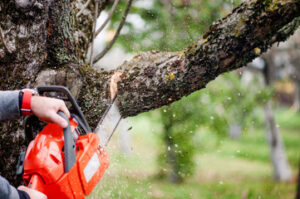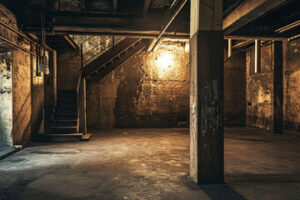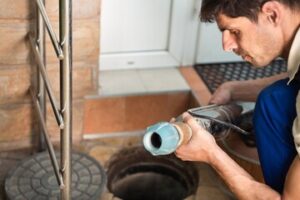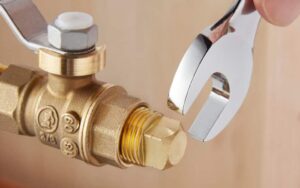Tree Cutting Irvine CA involves using an axe or chainsaw to trim and cut down trees. It is important to use proper techniques for this activity, as improper trimming or cutting trees at the wrong time can cause them to become damaged or diseased.

Start by removing the limbs that hang over your work area to avoid falling debris. Next, make a notch on the side of the tree that will fall at about a 70-degree angle.
Whenever possible, trees should be trimmed at the right time of year. This is a huge factor in how well the tree stays healthy, and it can also be a determining factor when it comes to whether or not a tree can be saved.
For the best results, it is recommended that you prune your trees during their dormant period in late winter or early fall. This is because it gives the tree a chance to heal quickly before the growth spurt that occurs in spring. Additionally, the dormant trees are leafless and lighter, making it much easier for a certified arborist to cut them. In addition, pruning during the dormant season reduces the amount of stress that is placed on the plant as it tries to focus on both growing and healing fresh cuts.
Another benefit of pruning during the dormant season is that it makes it less likely that your trees will catch diseases. During the growing season, it is easier for pathogens to enter a tree through freshly cut wounds, which can then cause a variety of health problems for your tree. However, if you need to remove a diseased or dead tree, you can do so at any time of the year.
It’s important to note, though, that trimming a tree at the wrong time can actually weaken it. Doing so during the peak growing season may cause the tree to have trouble focusing on its own growth, while also being prone to pest infestation and damage from the harsh weather conditions.
We offer a wide variety of tree trimming and other landscaping services, including lawn care, mowing, mulching, and planting. Our goal is to help you create a beautiful, lush, and healthy landscape. We can even take care of any invasive plants and remove fallen debris from storms or heavy winds.
Safety Measures to Take
When cutting trees, proper safety measures must be taken to protect yourself and those working around you. This is why hiring a professional tree service is recommended. They will have the right equipment to ensure that the job is done safely. They will also take into consideration the weather conditions as this can affect how a tree falls.
It is also important to clear the area around a tree to make sure that it does not fall onto anything that could be damaged, such as buildings, vehicles or other trees. The tree services will evaluate the surrounding area and look for any potential hazards such as overhead wires, other trees that may block the downward path of the fallen tree or dead limbs. They will also check that there is a clear escape route in case the tree falls unexpectedly.
If you are using a chainsaw, it is essential that you wear protective gear such as a hardhat, hearing protection and eye protection. You should also be wearing gloves when handling the chainsaw to prevent any injuries from occurring.
You should also ensure that the chainsaw is in good condition before starting to cut a tree. Make sure that the blade is not dragging and that there are no loose or sharp parts. It is also important to clean the saw after use and keep it oiled to avoid any damage.
It is a good idea to have a partner when felling trees. This way, they can monitor the direction of the falling tree and alert you if it becomes unsafe. They can also help you to remove any branches that might fall off the tree while it is being cut.
It is also important to stay at least 10 feet away from any power lines. If you are using a ladder or elevated work platform (EWP), then you should have an additional worker that can stay on the ground to watch for power lines. Power lines can be charged with electricity even after they are down, so it is vital to assume that they are energized until you are certain otherwise.
Preparing the Area
Cutting trees is an important activity for the health and beauty of your property. When done properly, it helps reduce the risk of insect infestations and structural damage. But if it’s done incorrectly, it can lead to a host of problems. In the worst case scenario, improper tree cutting can cause the death of the tree. This usually happens over a period of months or even years, and it can result in the tree becoming unstable and falling over.
To avoid this, it’s crucial to prepare the area before you start working on the tree. This includes ensuring there are no power lines, buildings or other structures in the area where the tree is going to fall. It’s also a good idea to check for any obstacles that could interfere with the process, like heavy growth or other trees nearby.
It’s also important to clear away any debris and other objects that are in the area around the tree you’re planning on cutting. This will help make the process more safe and efficient, and it will prevent you from tripping or getting hurt.
In addition, it’s a good idea to take a look at the tree from different angles. This will help you determine its fall direction and whether or not it’s safe to cut. If you notice that the tree is leaning in one direction, if there are other trees with heavy branches on the opposite side or if it’s too close to a building, power line or other structure, don’t hesitate to call the professionals.
You should also decide if you’re going to use an axe or a chainsaw for the job. An axe will work best for smaller tasks, while a chainsaw is a great option for bigger jobs and felling larger trees. If you’re not familiar with either of these tools, it’s a good idea to learn about them before trying to use them.
Tree Cutting Techniques
While pruning and trimming are essential to keep trees healthy and looking great, they must be done properly in order to minimize the risk of accidents and injuries. Not only can improper tree cutting cause structural weaknesses, but it can also lead to a variety of other problems such as fungal infections and pest infestations. Knowing the correct techniques to perform these activities is important for homeowners and professionals alike.
One of the most common mistakes made when cutting a tree is using inappropriate tools. Using improper tools can result in jagged cuts that take longer to heal and provide entry points for diseases or pests. It is also important to use clean tools to ensure that bacteria or other microbes are not transferred to the cutting area.
In addition to being dangerous, making the wrong cuts can also be very costly. For instance, if a cut is too close to the trunk of the tree, it could cause the tree to die. This is because the tree will not be able to wall off or seal the wound, which can lead to rot and disease. It is also important to avoid cutting a tree too far from the ground, which can create structural weaknesses and lead to a collapsed tree.
When felling a tree, the first cut is known as a notch or back cut. This cut is typically made on the side of the tree facing the direction in which it is to fall. The notch should be made at least 10 percent of the way into the branch that is to be cut. This allows the tree to hinge down, which reduces its speed and helps to keep the fall under control.
When the notch is completed, it is necessary to make a step cut on the other side of the branch being cut. This should be approximately 5cm from the initial notch. This step cut is designed to prevent the branch from slipping past the original cut and causing it to snag as it falls. The snagged limb can then cause injury to the person doing the cutting or damage to property.



